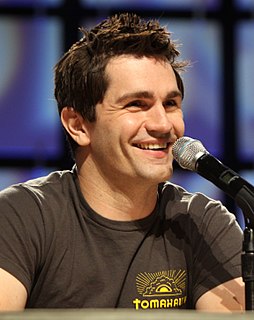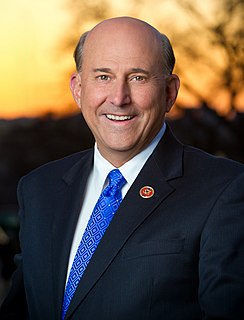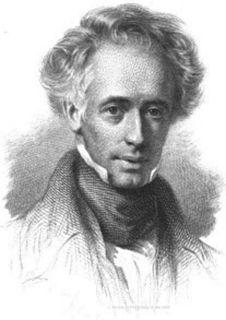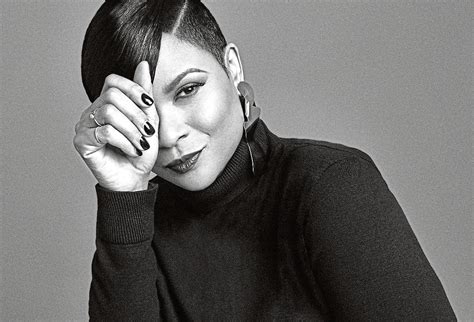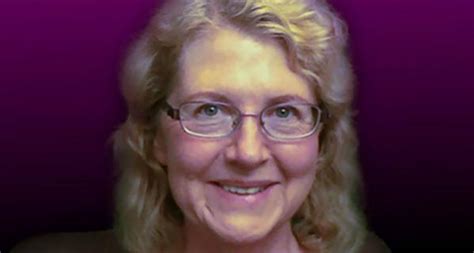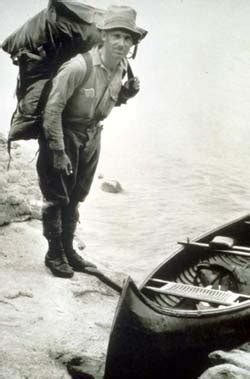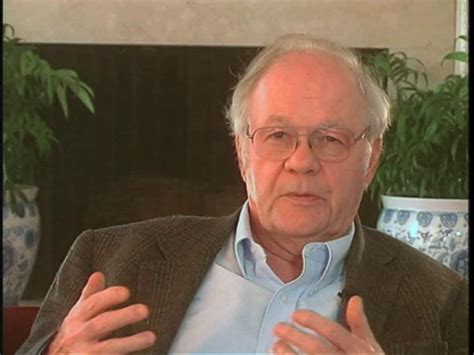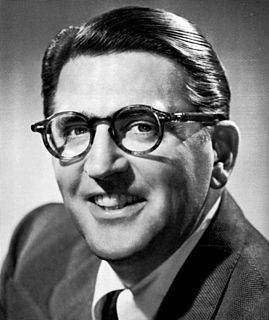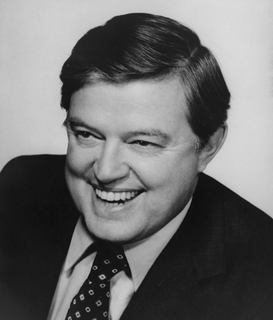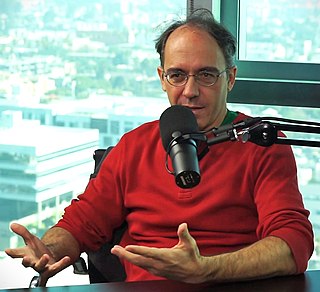Top 1200 Moral Strength Quotes & Sayings - Page 16
Explore popular Moral Strength quotes.
Last updated on December 22, 2024.
While I think in principle people should not have irrational beliefs, I should say that as a matter of fact, it is people who hold what I regard as completely irrational beliefs who are among the most effective moral actors in the world, in many respects. They're among the worst, but also among the best, even though the moral beliefs are ostensibly the same.
There are many doors to goodness. (Saying) 'glory to God,' 'praise be to God,' 'there is no deity but God,' enjoining good, forbidding evil, removing harm from the road, listening to the deaf (until you understand them), leading the blind, guiding one to the object of his need, hurrying with the strength of one's legs to one in sorrow who is asking for help, and supporting the weak with the strength of one's arms - all of these are (forms of) charity prescribed for you.
That's one thing about Dave Filoni. He doesn't call me up unless there's something to think about or there's something that we have to work out on a philosophical or moral or a mythological riddle that we need to solve. Some sort of moral conundrum that we need to place our feet on one side or the other. It's fun when we can ambiguously put those feet into the sand and let the fans discover for itself what it all means.
Indiscriminate tolerance and indiscriminate condemnation are not two opposites: they are two variants of the same evasion. To declare that “everybody is white” or “everybody is black” or “everybody is neither white nor black, but gray,” is not a moral judgment, but an escape from the responsibility of moral judgment.
At the center of the Christian faith is the affirmation that there is a God in the universe who is the ground and essence of all reality. A Being of infinite love and boundless power, God is the creator, sustainer, and conserver of values....In contrast to the ethical relativism of [totalitarianism], Christianity sets forth a system of absolute moral values and affirms that God has placed within the very structure of this universe certain moral principles that are fixed and immutable.
Poetry interprets in two ways: it interprets by expressing, with magical felicity, the physiognomy and movements of the outward world; and it interprets by expressing, with inspired conviction, the ideas and laws of the inward world of man's moral and spiritual nature. In other words, poetry is interpretative both by having natural magic in it, and by having moral profundity.
My first fundamental premise of our faith is that God is real and so are eternal truths and values not provable by current scientific methods. These ideas are inevitably linked. Like other believers, we proclaim the existence of the ultimate lawgiver, God our Eternal Father, and the existence of moral absolutes. We reject the moral relativism that is becoming the unofficial creed of much of modern culture.
While some animals exhibit individual powers in higher perfection, man stands for their superior, not only in combining in his own body all the senses and faculties which they possess, but in being endowed with moral and intellectual powers which are denied to them, and which at once place him at the head of the living creation, and constitute him a moral, religious, intelligent, and responsible being.
Market forces have no intrinsically moral direction, which is why, before he wrote The Wealth of Nations, Adam Smith wrote The Theory of Moral Sentiments. Ethics should precede economics. But it doesn't have to. . . . We know this because we've seen the results of capitalism without conscience: the pollution of the air we breathe, the water we drink, and the food we eat; the endangerment of workers; and the sale of dangerous products - from cars to toys to drugs. All in pursuit of ever-greater profits.
That bothers me when I see that fashion editors are consultants for brands. It tells me that the designer has lost sight of what he or she really wants to do, and that he or she is listening to the strength of a very strong stylist and being a little watered down - and by watered down, I mean, the strength of the designer's vision. I'm not saying it's easy.
It seems perfectly clear that Economy, if it is to be a science at all, must be a mathematical science. There exists much prejudice against attempts to introduce the methods and language of mathematics into any branch of the moral sciences. Most persons appear to hold that the physical sciences form the proper sphere of mathematical method, and that the moral sciences demand some other method-I know not what.
Fearlessness is a more than ordinary strength of mind, which raises the soul above the troubles, disorders, and emotions which theprospect of great dangers are used to produce. And by this inward strength it is that heroes preserve themselves in a calm and quiet state, and enjoy a presence of mind and the free use of their reason in the midst of those terrible accidents that amaze and confound other people.
Both gentleness and meekness are born of power, not weakness. There is a pseudo-gentlene ss that is effeminate, and there is a pseudo-meekness that is cowardly. But a Christian is to be gentle and meek because those are Godlike virtues... We should never be afraid, therefore, that the gentleness of the Spirit means weakness of character. It takes strength, God's strength, to be truly gentle.
To live a fulfilling life, we must combine passion with compassion and strength without strife; we must get out of our comfort zone and into our strength zone; and we must work every day with discipline to ensure that our daily agenda reflects our values, our priorities, and the legacy we wish to leave for others.
A compassionate attitude helps you communicate more easily with your fellow human beings. As a result, you make more genuine friends and the atmosphere around you is more positive, which gives you greater inner strength. This inner strength helps you spontaneously concern yourself with others, instead of thinking only about yourself.
The very idea of freedom presupposes some objective moral law which overarches rulers and ruled alike. Subjectivism about moral values is eternally incompatible with democracy. We and our rulers are of one kind only so long as we are subject to one law. But if there is no Law of Nature, the ethos of any society is the creation of its rulers, educators and conditioners; and every creator stands above and outside his own creation.
There is a moral virtue, a moral fidelity, ability and honesty, which other men, besides church members, are, by good nature and education, by good laws and good examples nourished and trained up in; so that civil places and trust and credit need not be monopolized into the hands of church members (who sometimes are not fitted for public office), while all others are deprived and despoiled of their natural and civil rights and liberties.
We can't literally talk with everybody else on the planet or even with representatives of every group. But we can be in favor of the respectful exchange of ideas in ways that don't presuppose that all the right answers are on our own side. Still, we should all have moral bottom lines. Once genocide or torture begins the priority shifts from understanding to stopping it. One hope I have for the global conversation as instantiated in human rights treaties is that we are slowly coming to consensus on certain moral baselines.
The sad truth is, if you push hard enough, and if you’re so stubborn that you must have things your way, God will sometimes allow you to undertake a project without His blessing or at the wrong time. The problem with that, of course, is when you start something in your own strength and in your own timing, you’re going to have to finish it and maintain it in your own strength.
Recreation in the open is of the finest grade. The moral benefits are all positive. The individual with any soul cannot live long in the presence of towering mountains or sweeping plains without getting a little of the high moral standard of Nature infused into his being ... with eyes opened, the great story of the Earth's forming, the history of a tree, the life of a flower or the activities of some small animal will all unfold themselves to the recreationist.
It seems fair to say that while the moral standards of the nineteenth century persisted almost unchanged into the twentieth, moral practices changed sharply, and that though the standards of the nineteenth century persisted the institutions that had sustained them and the sanctions that had enforced them lost influence and authority.
And so was Luria, whose words now came back to me: ‘A man does not consist of memory alone. He has feeling, will, sensibility, moral being ... It is here ... you may touch him, and see a profound change.’ Memory, mental activity, mind alone, could not hold him; but moral attention and action could hold him completely.
The time has also come to recognize the painful truth that traditional Judeo-Christian moral values of pain and pleasure in human relationships have contributed substantially to child abuse and to the prevalence of physical violence in Western civilization.... The religious system upon which our culture is based holds that pain, suffering and deprivation are moral and necessary to save one's soul and make one a 'good person.' The crucifixion and scourging of Christ are examples.
Successful or not, acts of physical courage always bring honor. It is the smaller forms of valor - standing up for principle at the risk of social disapproval, economic loss or injury to career - that require the greatest moral will power. Since there is usually little upside to winning and a significant and often lasting downside to losing, moral courage often requires as much character as physical bravery.
Of all the cares or concerns of government, the direction of war most peculiarly demands those qualities which distinguish the exercise of power by a single hand. The direction of war implies the direction of the common strength; and the power of directing and employing the common strength, forms a usual and essential part in the definition of the executive authority.
I think I would rather live on the verge of falling and let my security be in the all-sufficiency of the grace of God than to live in some pietistic illusion of moral excellence. Not that I don't want to be morally excellent but my faith isn't in the idea that I'm more moral than anybody else. My faith is in the idea that God and His love are greater than whatever sins any of us commit.
It is true (independently of our conceptualisation) that it is wrong to inflict pain on a sentient creature for no reason (she doesn't deserve it, I haven't promised to do it, it is not helpful to this creature or to anyone else if I do it, and so forth). But if this is a truth, existing independently of our conceptualisation, then at least one moral fact (this one) exists and moral realism is true. We have to accept this, I submit, unless we can find strong reasons to think otherwise.
From the explanatory notes that Willson wrote to accompany his symphony, A Symphony of San Francisco,: "Generally speaking, the first movement is intended to convey pioneer courage, loyalty, strength of purpose and freedom." The trumpet motive in the closing Allegro "is a call of defiance to the very elements themselves that had the temerity to dispute the spiritual strength and courage of the golden city of the West."
For God to be kept out of the classroom or out of America's public debate by nervous school administrators or overcautious politicians serves no one's interests. That restriction prevents people from drawing on this country's rich and diverse religious heritage for guidance, and it degrades the nation's moral discourse by placing a whole realm of theological reasoning out of bounds. The price of that sort of quarantine, at a time of moral dislocation, is - and has been - far too high.
The reason I love travel is not just because it transports you in every sense, but because it confronts you with emotional and moral challenges that you would never have to confront at home. So I like going out in search of moral and emotional adventure which throws me back upon myself and forces me to reconsider my assumptions and the things I took for granted. It sends me back a different person.
The desire for guidance, love, and support prompts men to form the social or moral conception of God. This is the God of Providence, who protects, disposes, rewards, and punishes; the God who, according to the limits of the believer's outlook, loves and cherishes the life of the tribe or of the human race, or even of life itself; the comforter in sorrow and unsatisfied longing; he who preserves the souls of the dead. This is the social or moral conception of God.
I would say to anybody who thinks that all the problems in philosophy can be translated into empirically verifiable answers - whether it be a Lawrence Krauss thinking that physics is rendering philosophy obsolete or a Sam Harris thinking that neuroscience is rendering moral philosophy obsolete - that it takes an awful lot of philosophy - philosophy of science in the first case, moral philosophy in the second - even to demonstrate the relevance of these empirical sciences.
The moral justification of capitalism does not lie in the altruist claim that it represents the best way to achieve 'the common good.' It is true that capitalism does -- if that catch-phrase has any meaning -- but this is merely a secondary consequence. The moral justification for capitalism lies in the fact that it is the only system consonant with man's rational nature, that it protects man's survival qua man, and that its ruling principle is: justice
Their usual mistaken premise is that they affirm some consensus among people, at least among tame peoples, concerning certain moral principles, and then conclude that these principles must be unconditionally binding also for you and me-or conversely, they see that among different peoples moral valuations are necessarily different and infer from this that no morality is binding-both of which are equally childish.
What is the spirituality we need for the 21st century? We face a choice: to retire from this fray into some marshmallow paradise where we can massage away the heat of the day, the questions of the time, the injustice of the age, and live like pious moles in the heart of a twisted world. Or, we can gather our strength - our spiritual strength - for the struggle it will take to wake up from this pious sleep.
The art of using troops is this:
......When ten to the enemy's one, surround him;
......When five times his strength, attack him;
......If double his strength, divide him;
......If equally matched you may engage him;
......If weaker numerically, be capable of withdrawing;
......And if in all respects unequal, be capable of eluding him,
..........for a small force is but booty for one more powerful.
If any influential nation had the great spiritual strength to lay down its arms and appear with clean hands before the world, the world would be changed. I see no evidence that any influential nations has such great spiritual strength and courage. Therefore disarmament will be a slow process, motivated by the wish to survive.
Now this is the Law of the Jungle -- as old and as true as the sky; And the Wolf that shall keep it may prosper, but the Wolf that shall break it must die. As the creeper that girdles the tree-trunk the Law runneth forward and back -- For the strength of the Pack is the Wolf, and the strength of the Wolf is the Pack.
We ought not to confine ourselves either to writing or to reading; the one, continuous writing, will cast a gloom over our strength, and exhaust it; the other will make our strength flabby and watery. It is better to have recourse to them alternately, and to blend one with the other, so that the fruits of one's reading may be reduced to concrete form by the pen.
How does something immoral, when done privately, become moral when it is done collectively? Furthermore, does legality establish morality? Slavery was legal; apartheid is legal; Stalinist, Nazi, and Maoist purges were legal. Clearly, the fact of legality does not justify these crimes. Legality, alone, cannot be the talisman of moral people.
Lastly, our ancestors established their system of government on morality and religious sentiment. Moral habits, they believed, cannot safely be trusted on any other foundation than religious principle, nor any government be secure which is not supported by moral habits.... Whatever makes men good Christians, makes them good citizens.


